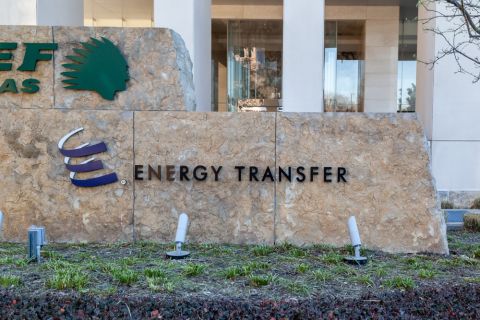Geez, I think it's over. To get a U.S. energy policy through Congress this year, even a watered-down version, we face an uphill fight-and the hill is far steeper than we supposed. Bit by bit, opponents have chipped away at the Bush-Cheney proposals, which are not helped by the fact that the president's approval rating has declined. Two former oilmen may occupy the White House, but that seems to actually hurt our cause. Little did we realize that public opposition ran so deep. Consider what happened to House Majority Whip Tom DeLay, who represents Sugar Land, a Houston suburb. Back in his old hometown in July, to conduct a town meeting on energy policy, he was routinely interrupted and booed by a fairly hostile crowd. Supporters were out-shouted by opponents; each side insulted the other. A police officer called for calm. If energy issues cannot be civilly discussed even in Houston, the energy capital of the world, what hope is there for constructive debate elsewhere? Truly, a prophet does not receive honor in his own country. In California, meanwhile, it quite possibly may be illegal to make a profit in the energy business. A state legislator has proposed to make it a felony (!) for a gas producer to charge more than its marginal cost of production or to intentionally curtail production, including idling a well due to low market prices. (Oddly, the U.S. government pays farmers not to plant.) The bill goes so far as to offer a reward for any non-profit group or lawyer that brings alleged price gouging to the attention of the State Attorney General. Mandatory jail time and fines for corporate officers are part of this! For some strange reason, the bill's sponsor removed oil and coal producers from this bill, but left gas producers in. Incredibly, at press time this bill had passed committee and was headed to the full assembly for a vote this fall. Energy associations, the California Chamber of Commerce and the business community are fighting it tooth and nail. "This bill seeks to make normal day-to-day business decisions subject to a felony charge and defines anything over a margin as price gouging," explains John Martini, director of public affairs for the California Independent Petroleum Association. "The energy crisis has hit us so hard here, people are casting about for someone, anyone, to blame. We need laws that encourage investment in our infrastructure rather than making criminals out of businessmen engaged in lawful activity." If people don't like oil and gas, what will they think of resurgent coal, which already supplies 51% of U.S. power needs? These protesters should encourage gas drilling, not condemn it. If there is a shortage of gas because no one dares drill for it, coal will only gain more ground. That would please Peabody Coal Co., the largest private-sector coal producer in the world. Some 93% of the St. Louis-based company's production is sold to U.S. electricity generators, and most of that is under long-term contracts of up to 15 years. Founded in 1883, Peabody began trading on the New York Stock Exchange in 1949. Over the years, it was repeatedly bought and sold by U.S. and U.K. mining conglomerates, and taken private. In May of this year, Peabody went public again, this time at $28 per share (NYSE: BTU). A Lehman Brothers partnership owns 57% of the total outstanding equity. Before gas prices spiked last year, gas was the lowest-cost-per-Btu fuel, and favored due to its environmental qualities. But when gas prices rose above $3.50 per Mcf, coal regained its advantage, according to a report on Peabody by A.G. Edwards & Sons, which managed an offering for the company. It has a Buy/Aggressive rating on the stock. During the past 12 months, some 20,000 megawatts of new coal-fired generating plants were announced, with start dates as early as 2002, the report says. As the largest U.S. coal producer, Peabody naturally stands to benefit. In addition, it is expanding into coal trading, which just began on the New York Mercantile Exchange in July. Peabody also is poking around in coalbed methane gas production, a natural extension of its mining activity, and forming power generation partnerships. At press time, gas prices had fallen 45% since April. Gas storage levels rose above the five-year average, so E&P stocks have taken it on the chin as momentum investors fled the sector and value investors feared to come back. Halliburton, Schlumberger and BJ Services hit 52-week lows, even though the rig count is at a 15-year high. Utilization and day rates in the Gulf of Mexico have begun to deteriorate; some rigs have left the Gulf for West Africa. "Don't be fooled into thinking the natural gas shortage is solved," cautioned Bob Rose, chairman of Global Marine. Continuing depletion, and smaller and smaller drilling targets on the Gulf of Mexico Shelf, indicates that operators will have to drill even more wells, he added.
Recommended Reading
Energy Transfer Asks FERC to Weigh in on Williams Gas Project
2024-04-08 - Energy Transfer's filing continues the dispute over Williams’ development of the Louisiana Energy Gateway.
Imperial Oil Shuts Down Fuel Pipeline in Central Canada
2024-03-18 - Supplies on the Winnipeg regional line will be rerouted for three months.
Balticconnector Gas Pipeline Will be in Commercial Use Again April 22, Gasgrid Says
2024-04-17 - The Balticconnector subsea gas link between Estonia and Finland was damaged in October along with three telecoms cables.
US Appeals Court Upholds FERC Approvals for Gas Pipeline Expansion
2024-05-02 - A unanimous three-judge panel of the U.S. Circuit Court of Appeals for the D.C. Circuit held that the Federal Energy Regulatory Commission was right to determine the Evangeline Pass Expansion project is functionally separate from four related gas infrastructure developments.
Williams Beats 2023 Expectations, Touts Natgas Infrastructure Additions
2024-02-14 - Williams to continue developing natural gas infrastructure in 2024 with growth capex expected to top $1.45 billion.



